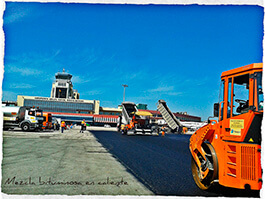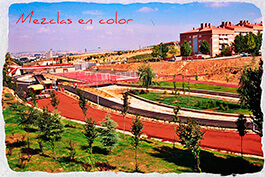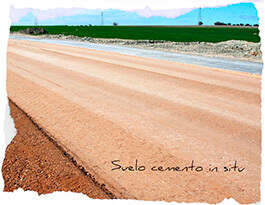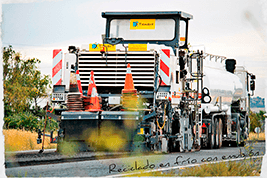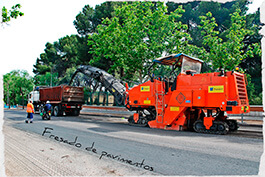TRABIT’s main activity is the manufacture and application of hot and cold mix asphalt.
We produce every layer included in articles 543 and 543 of PG-3 in our asphalt plants located in Velilla de San Antonio (Madrid),
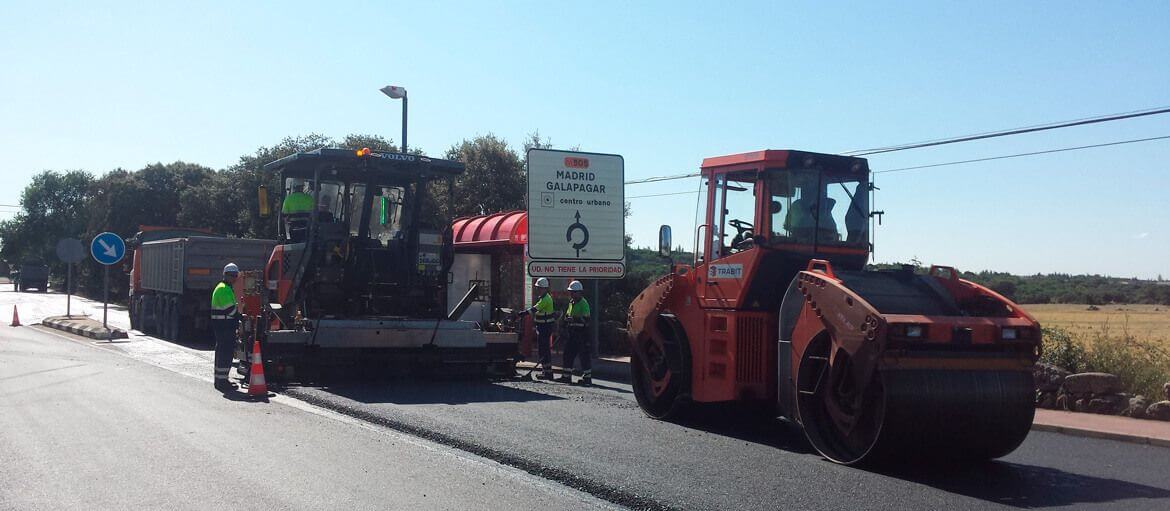 Carretera M-505 (Galapagar)
Carretera M-505 (Galapagar)
Rehabilitación de firme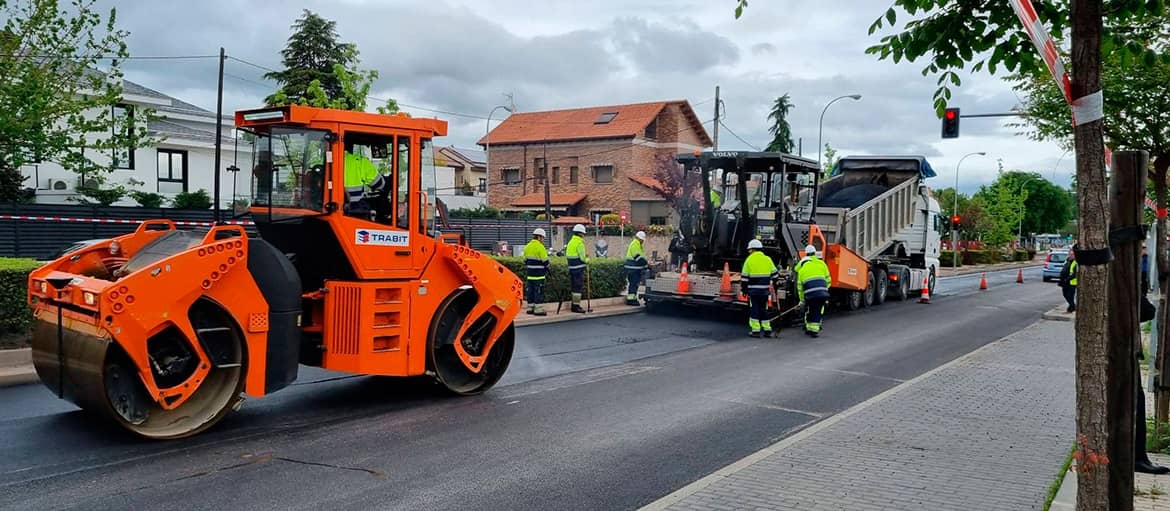 Avenida de Logroño (Madrid)
Avenida de Logroño (Madrid)
Extendido y compactación de MBC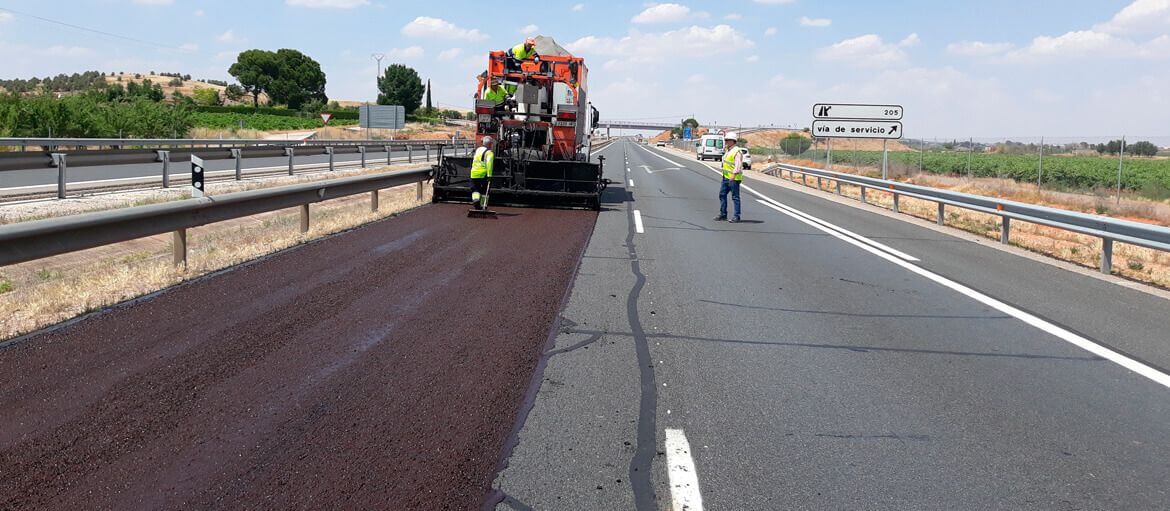 A-4 (Valdepeñas)
A-4 (Valdepeñas)
Microaglomerado en frío/ Slurry “GRIPFIBRE”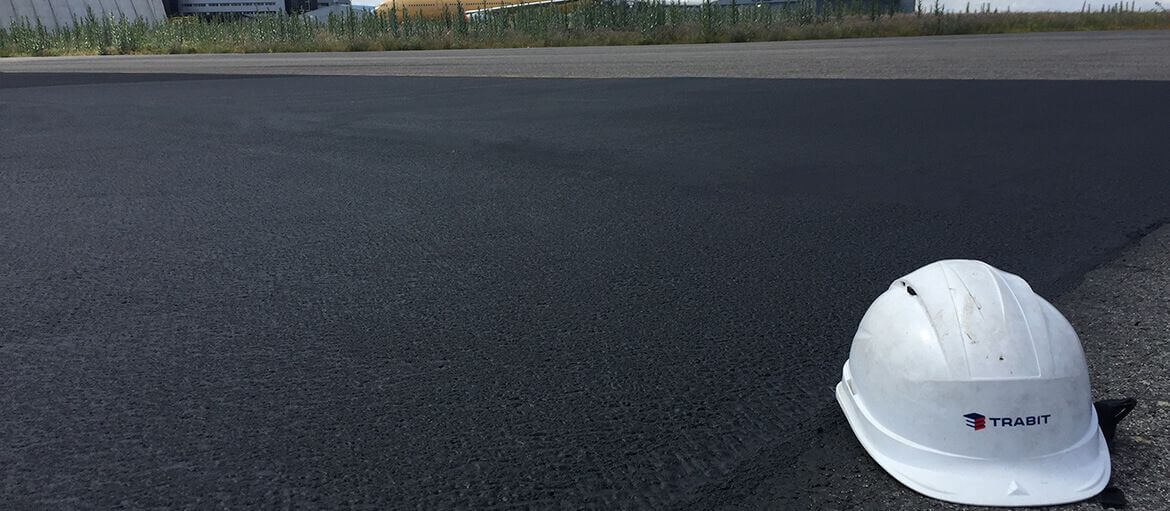 Base Aérea de Airbus
Base Aérea de Airbus
Tratamiento superficial anticarburante Autopista de Peaje AP-71 León - Astorga
Autopista de Peaje AP-71 León - Astorga
Reciclado in situ con cemento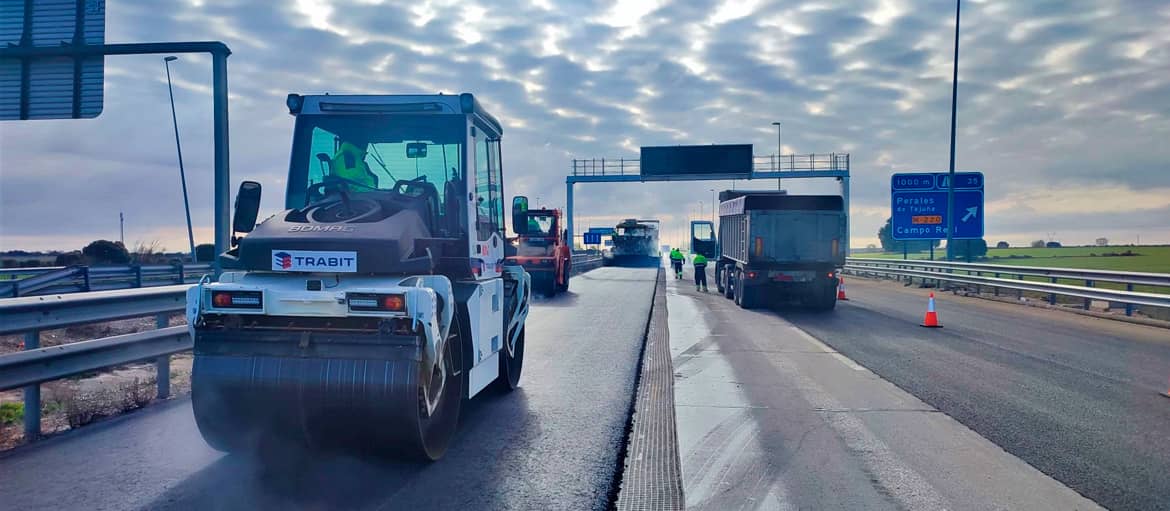 Carretera A3 sentido Valencia (Madrid)
Carretera A3 sentido Valencia (Madrid)
Extendido y compactación de MBC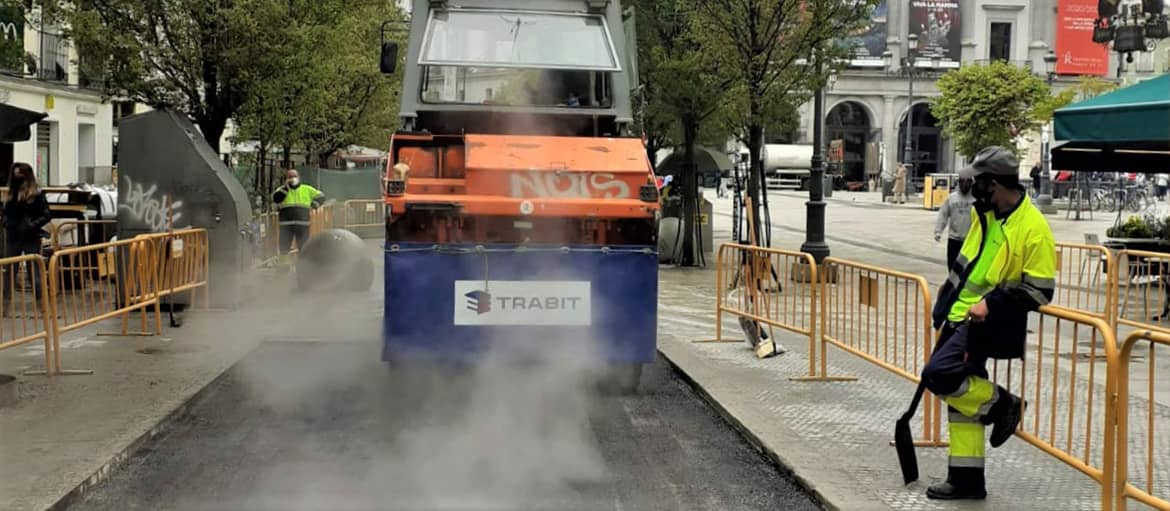 Pavimentación en la Calle Arenal (Madrid)
Pavimentación en la Calle Arenal (Madrid)
Compactación de MBC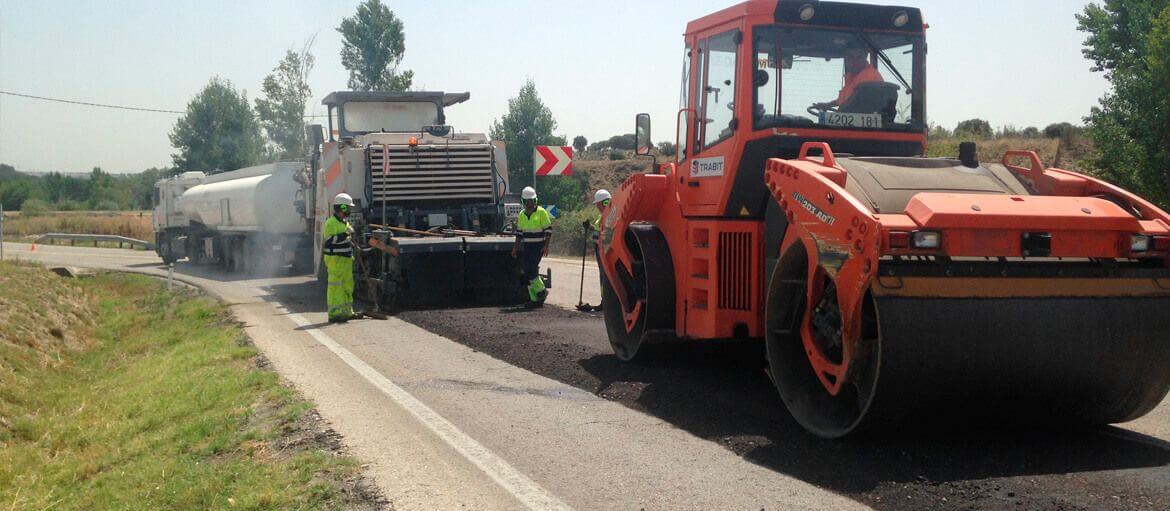 Carretera M-513 (Brunete)
Carretera M-513 (Brunete)
Reciclado con emulsión Carretera M-510 (Valdemorillo-Navalagamella)
Carretera M-510 (Valdemorillo-Navalagamella)
Mejora y refuerzo de firme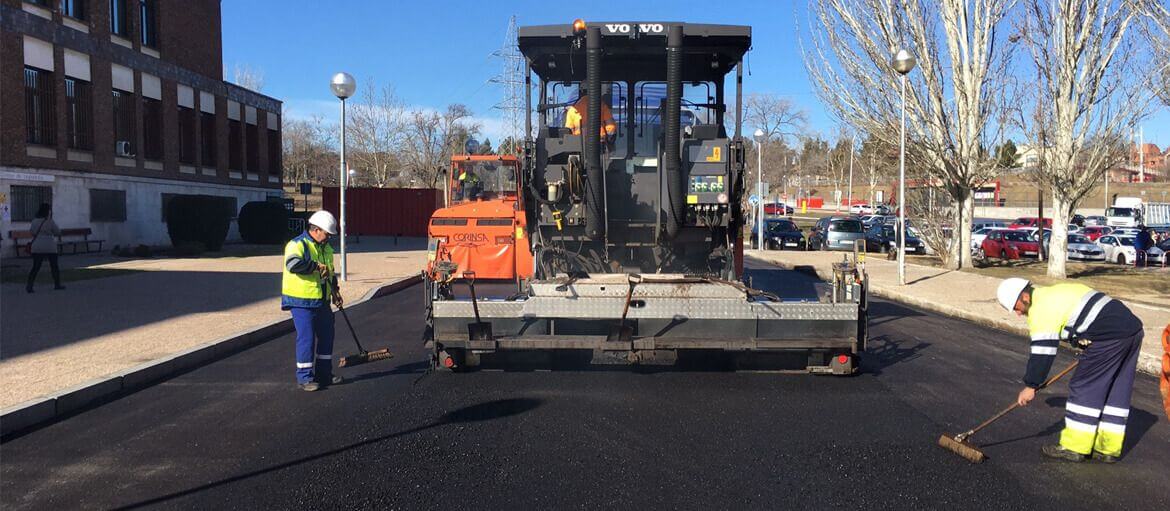 Universidad Complutense de Madrid. Campus de Somosaguas
Universidad Complutense de Madrid. Campus de Somosaguas
Extendido de MBC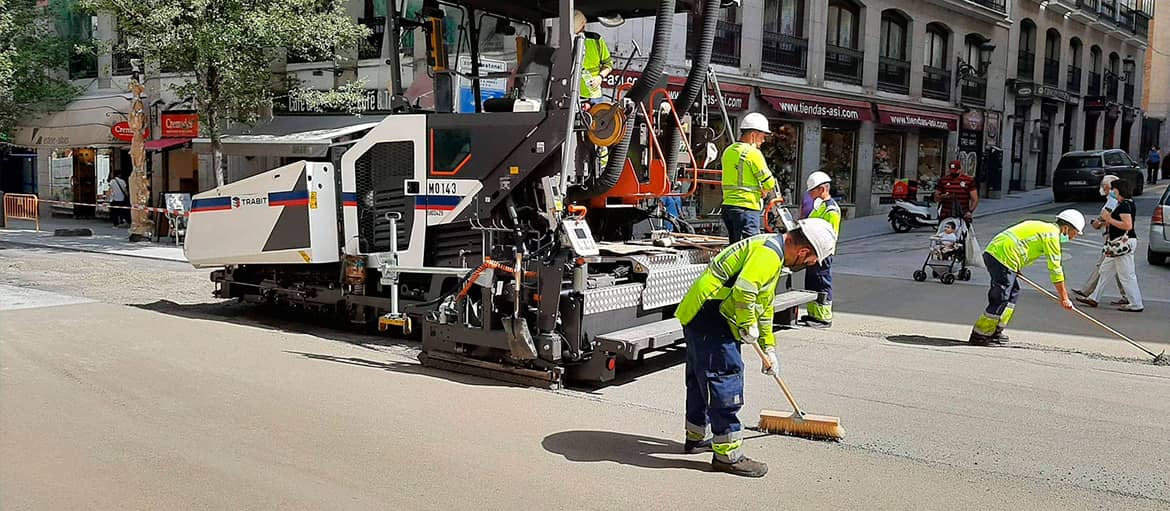 Pavimentación con microaglomerado granítico (Calle Arenal, Madrid)
Pavimentación con microaglomerado granítico (Calle Arenal, Madrid)
Extendido de MBC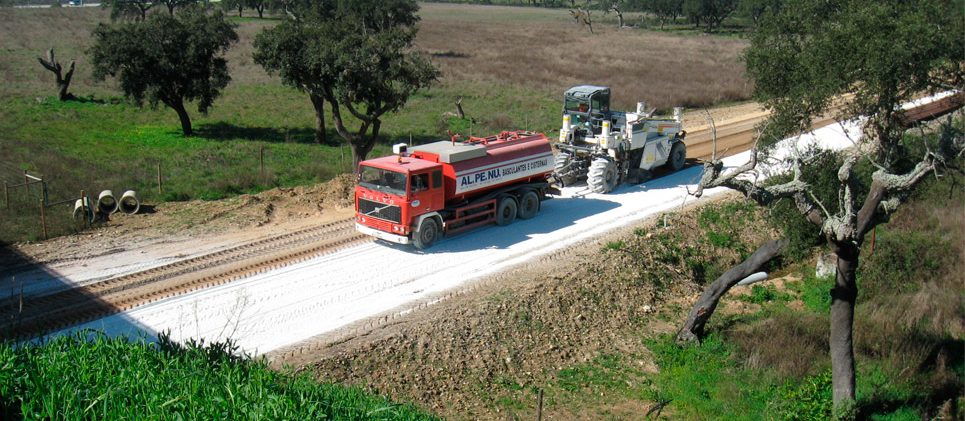 Tramo ferroviario en Évora (Portugal)
Tramo ferroviario en Évora (Portugal)
Suelo estabilizado in situ con cal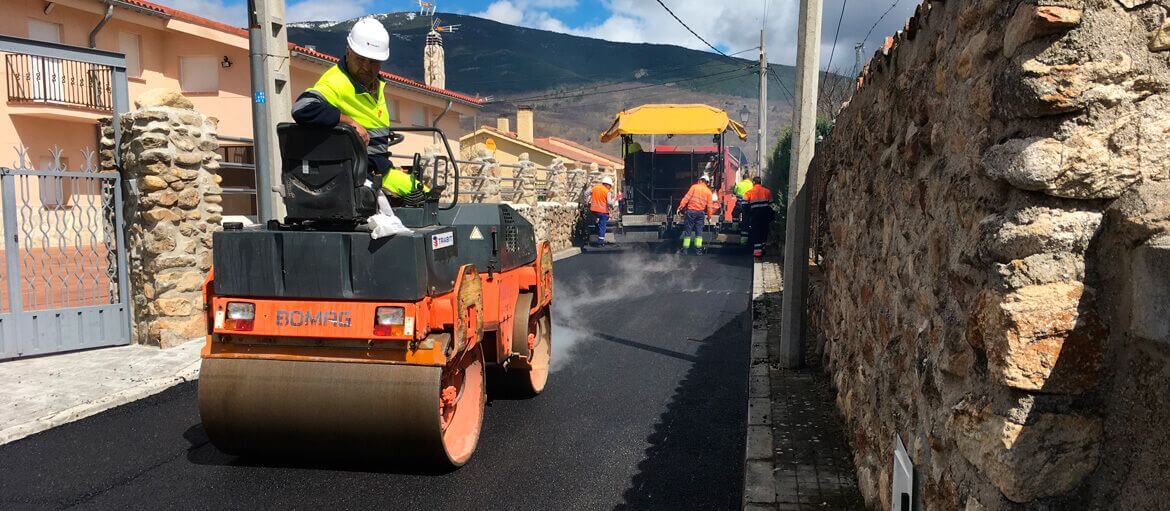 Sierra Norte de Madrid
Sierra Norte de Madrid
Extendido de aglomerado en calles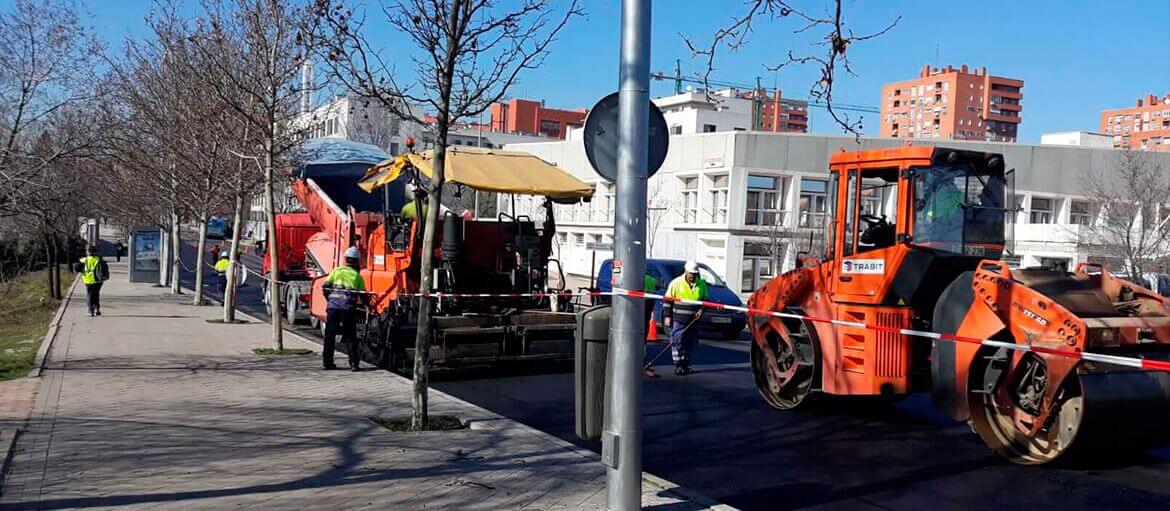 Calle Hacienda de Pavones (Madrid)
Calle Hacienda de Pavones (Madrid)
Plan de barrios en calzadas. Ayuntamiento de Madrid. Gran Vía (Madrid)
Gran Vía (Madrid)
Fresado de pavimento asfáltico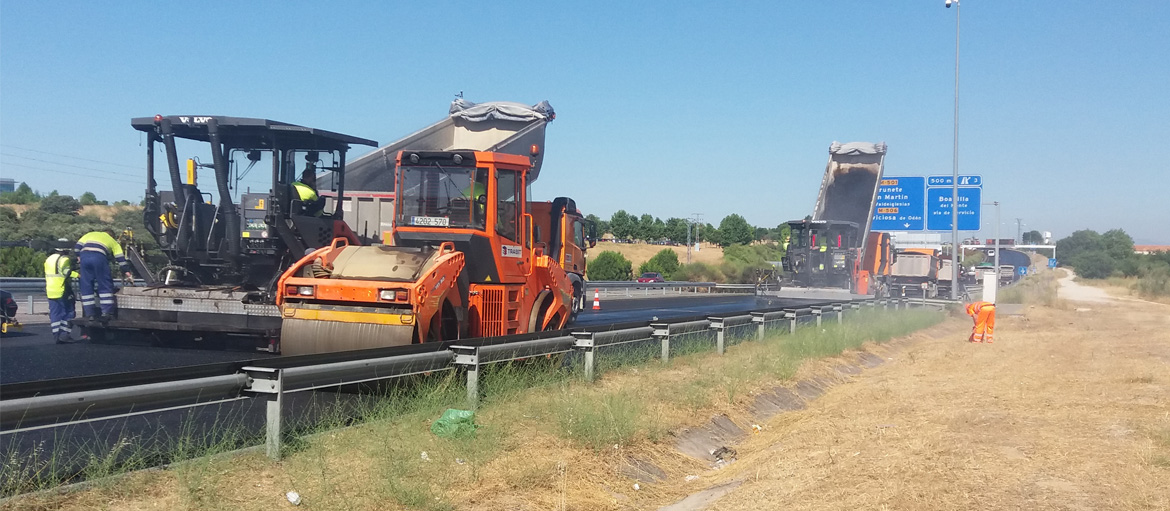 Carretera M-501 (Comunidad de Madrid)
Carretera M-501 (Comunidad de Madrid)
Extendido de MBC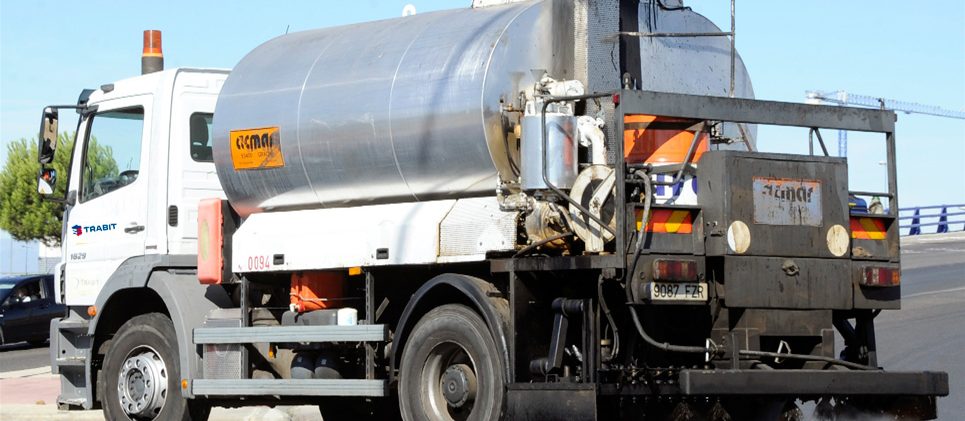 Móstoles
Móstoles
Operación asfalto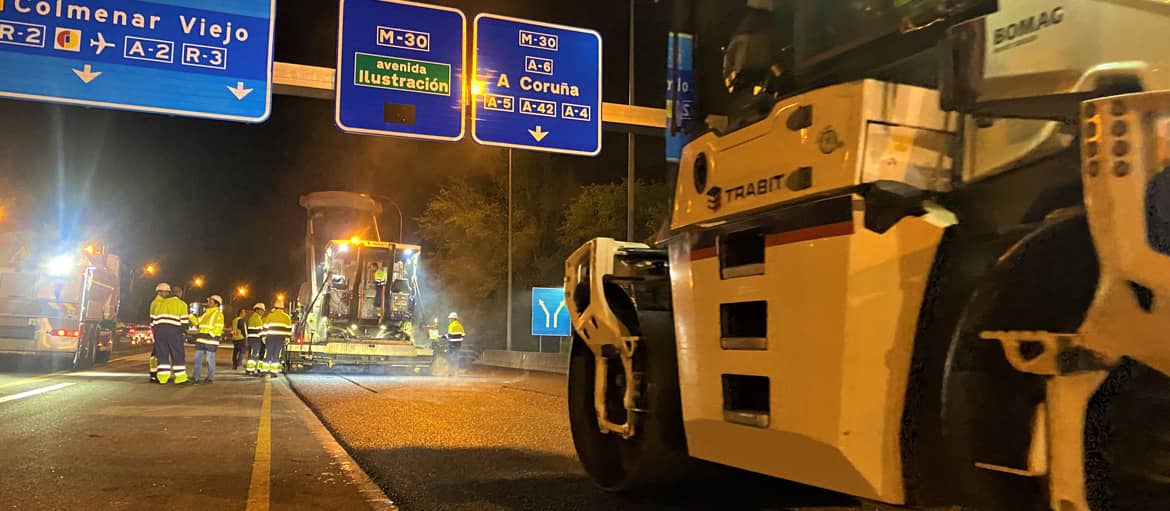 M40 (Madrid)
M40 (Madrid)
extendido y compactación MBC Calle Gran Vía (Madrid)
Calle Gran Vía (Madrid)
Extendido de MBC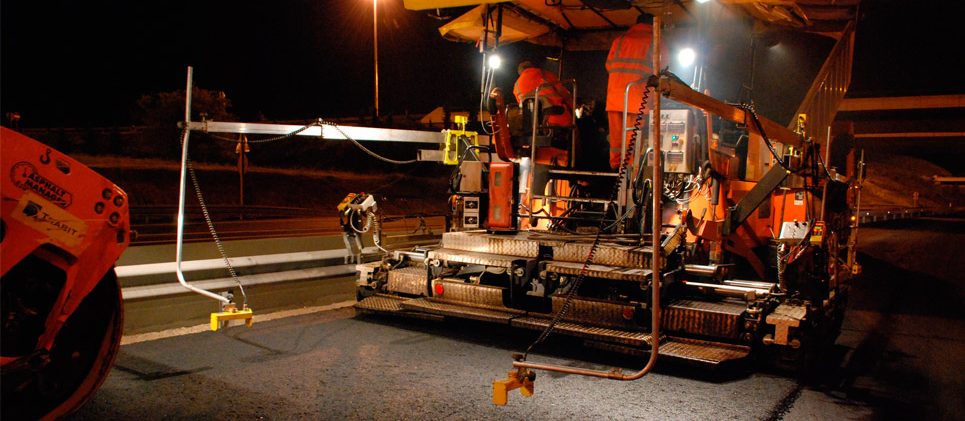 Carretera N-400 Toledo - Aranjuez
Carretera N-400 Toledo - Aranjuez
Refuerzo de firme - Extendido MBC de noche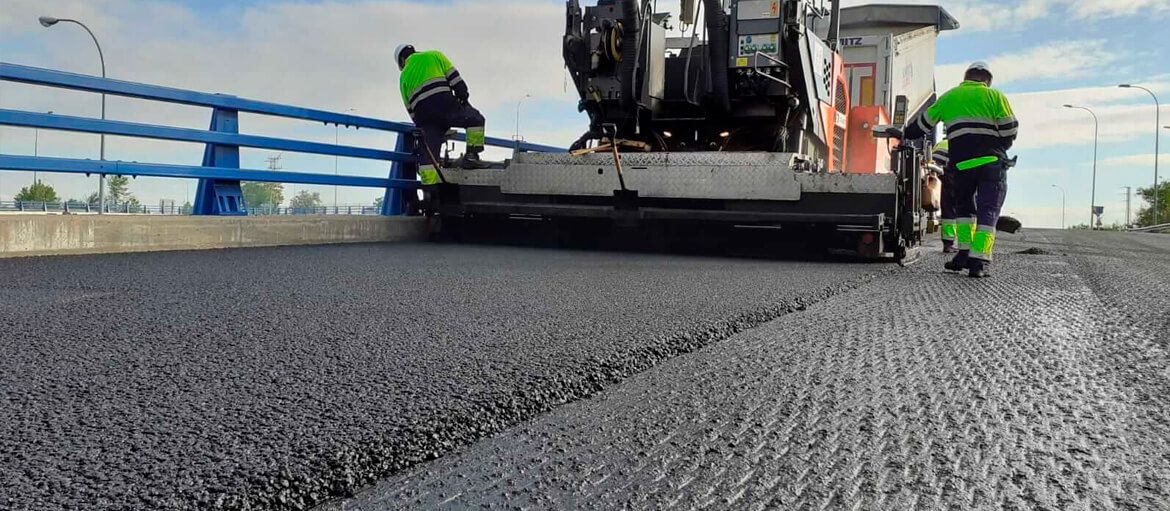 Ramal M-45 (Madrid)
Ramal M-45 (Madrid)
Extendido de MBC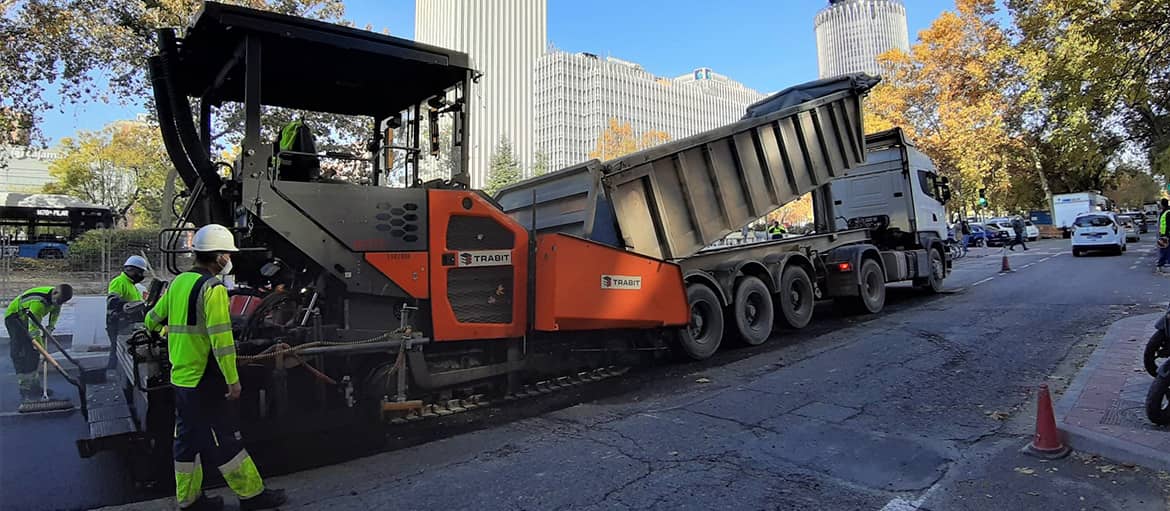 Lateral de Paseo de la Castellana
Lateral de Paseo de la Castellana
Extendido de MBC Calle Gran Vía (Madrid)
Calle Gran Vía (Madrid)
Extendido de MBC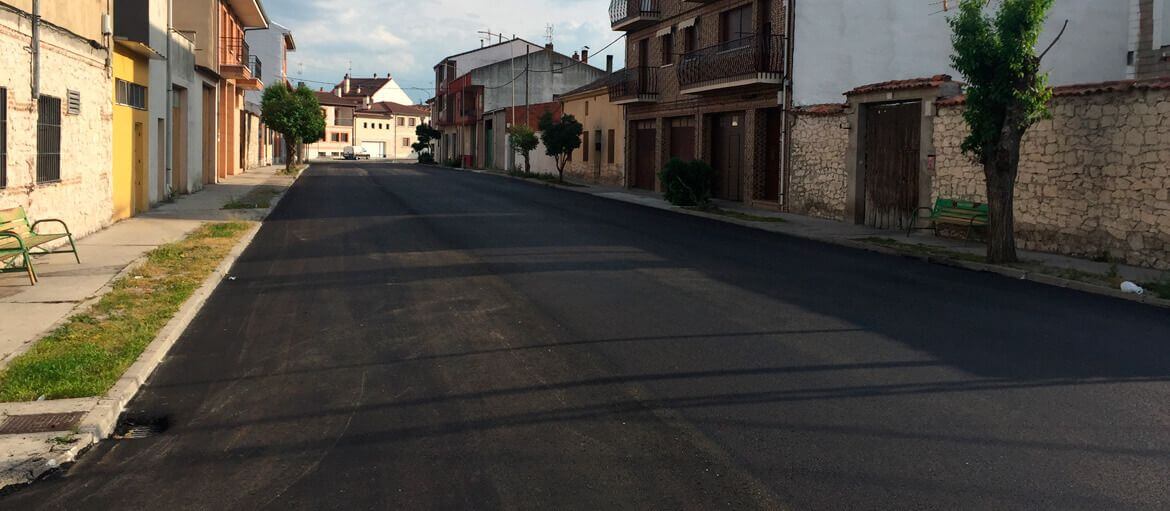 Cuéllar (Segovia)
Cuéllar (Segovia)
Asfaltado de varias calles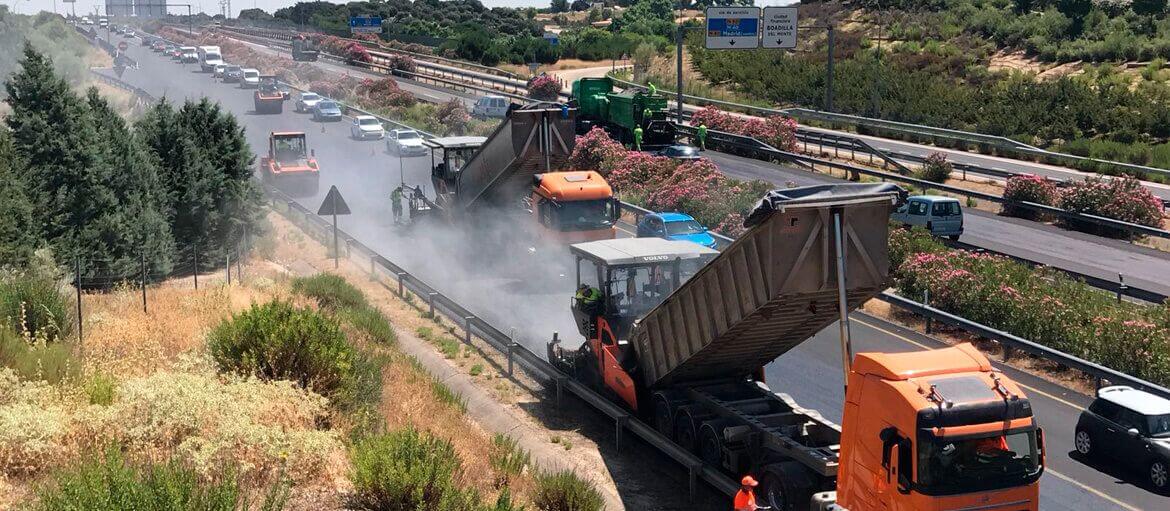 Carretera M-501 (Comunidad de Madrid)
Carretera M-501 (Comunidad de Madrid)
Extendido de MBC Parque Madrid Río (Madrid)
Parque Madrid Río (Madrid)
Compactacion MBC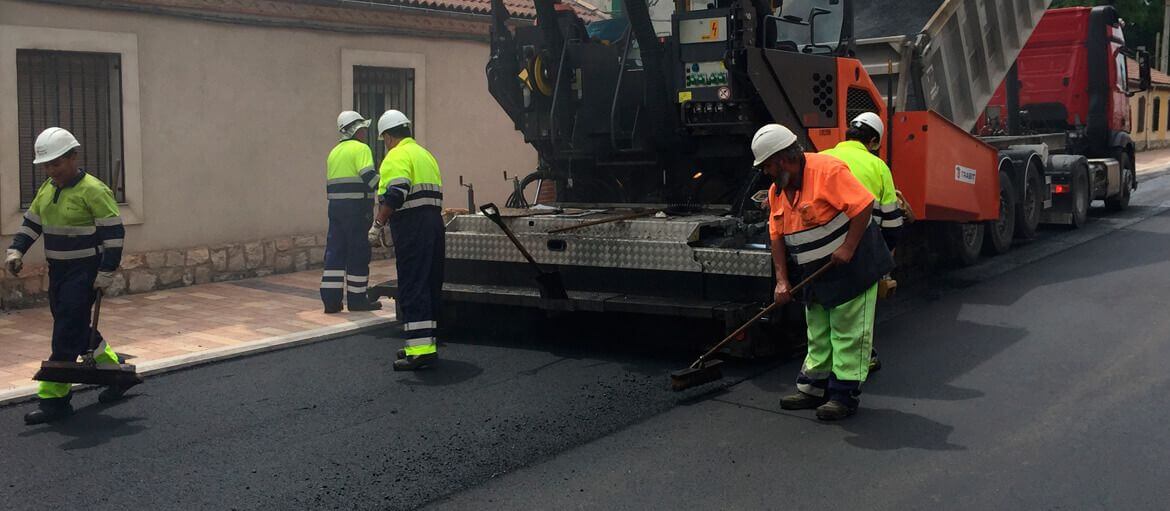 Cuéllar (Segovia)
Cuéllar (Segovia)
Asfaltado de varias calles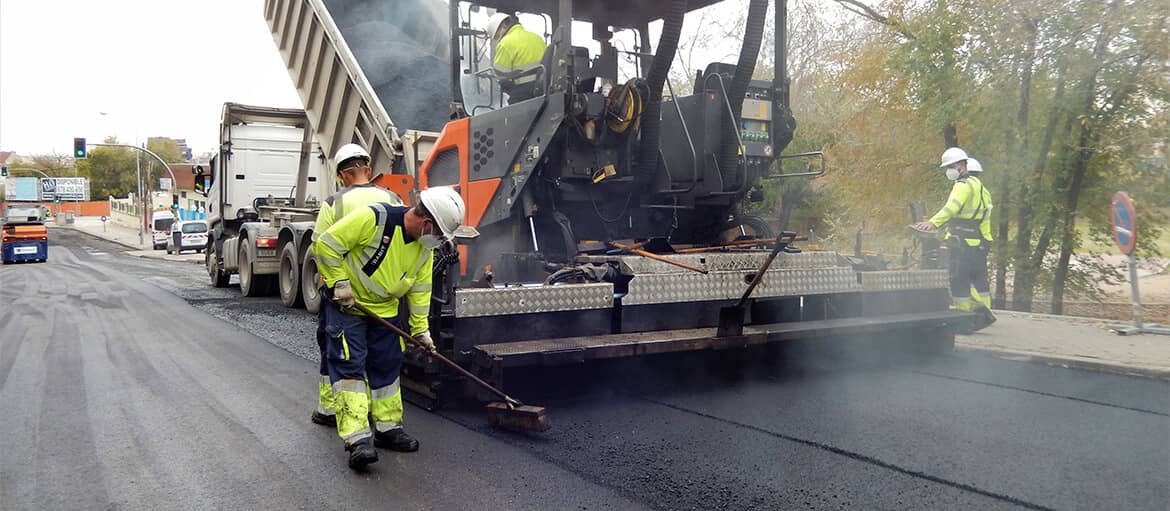 Camino Viejo de Vicálvaro
Camino Viejo de Vicálvaro
Extendido de MBC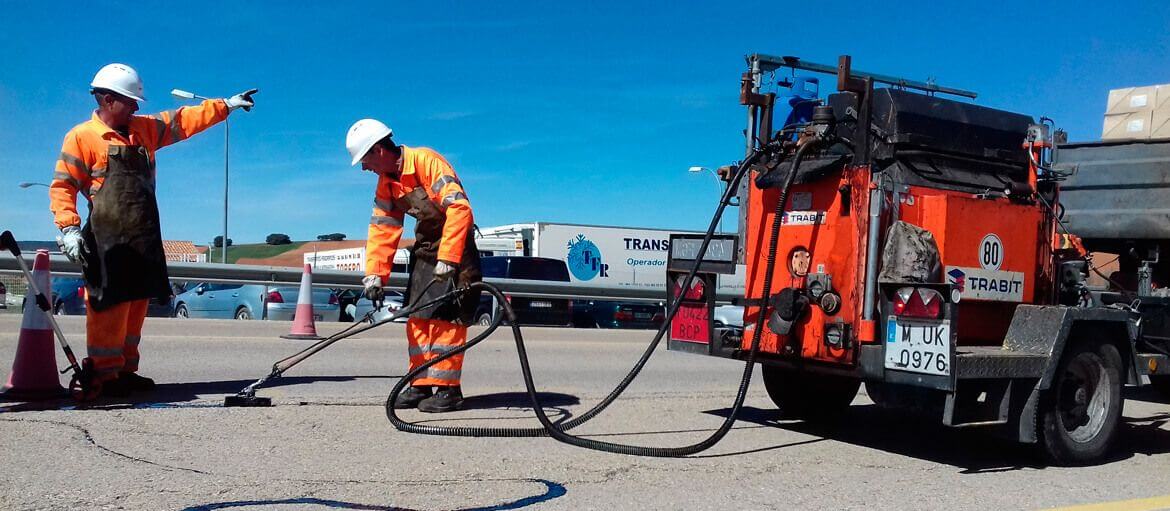 Carretera N420 (Cuenca)
Carretera N420 (Cuenca)
Sellado de grietas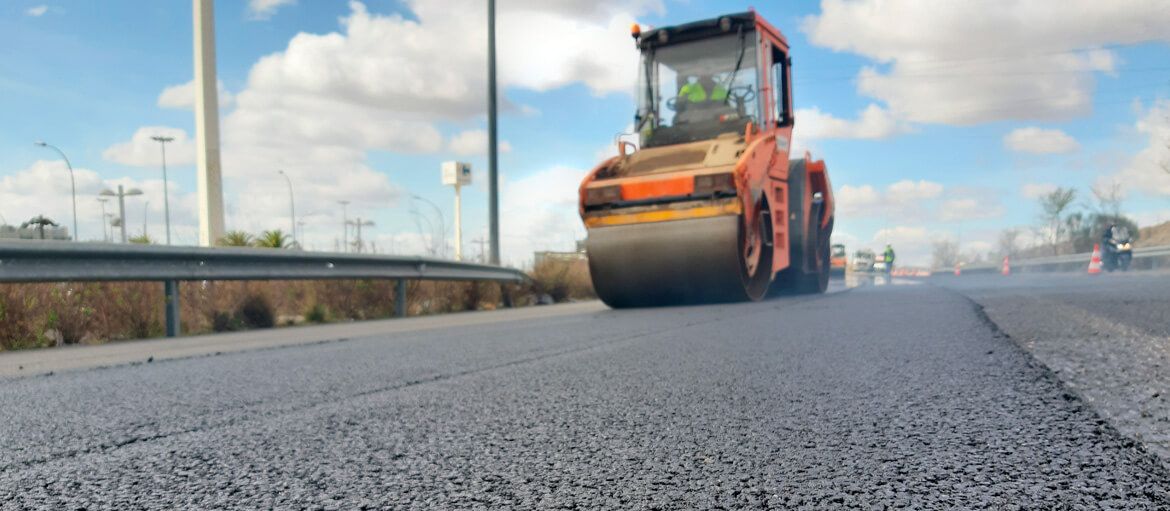 Vía de Servicio Ensanche de Vallecas (Madrid)
Vía de Servicio Ensanche de Vallecas (Madrid)
Extendido de mezcla SMA-11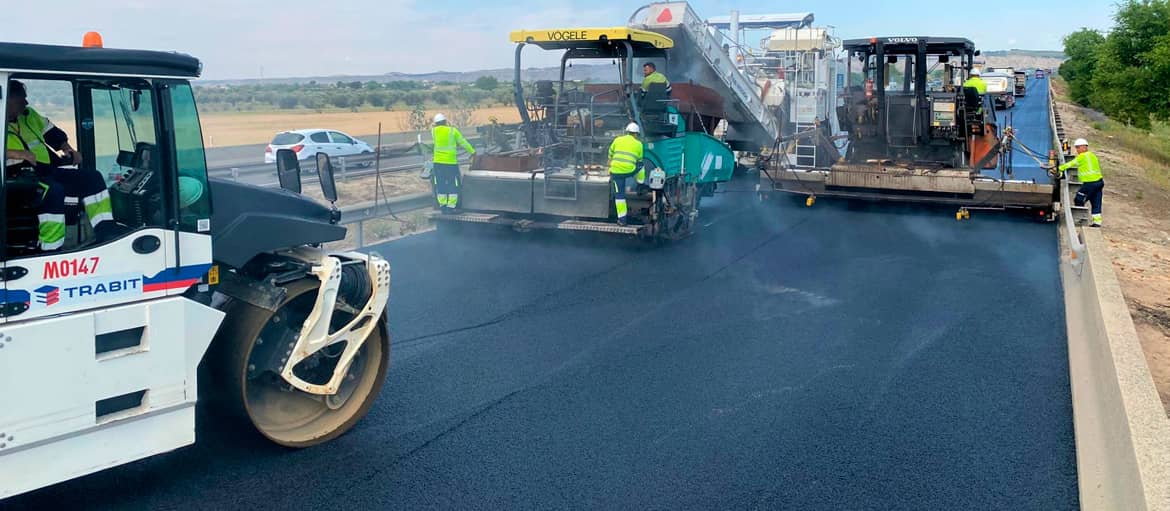 Carretera A3 sentido Madrid (Madrid)
Carretera A3 sentido Madrid (Madrid)
Extendido y compactación de MBC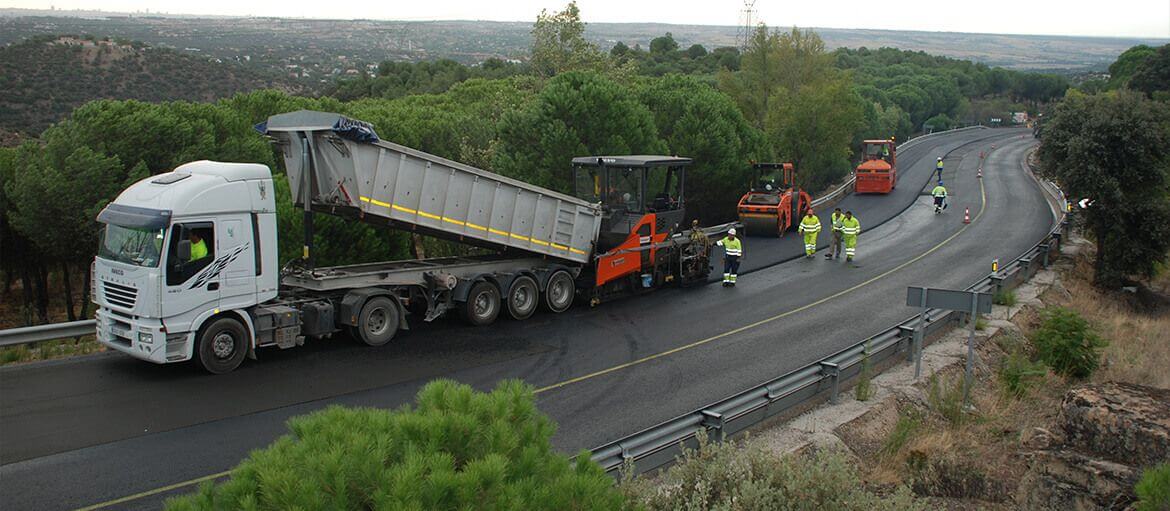 Carretera M-505
Carretera M-505
Refuerzo con aglomerado asfáltico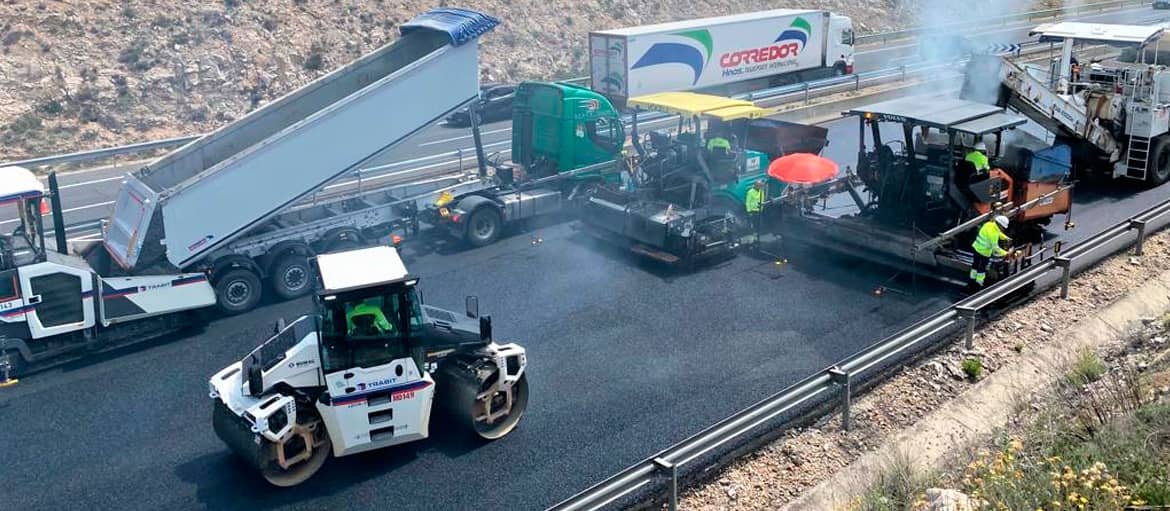 Carretera A3 sentido Valencia (Madrid)
Carretera A3 sentido Valencia (Madrid)
Extendido (3 extendedoras en paralelo) y compactación de MBC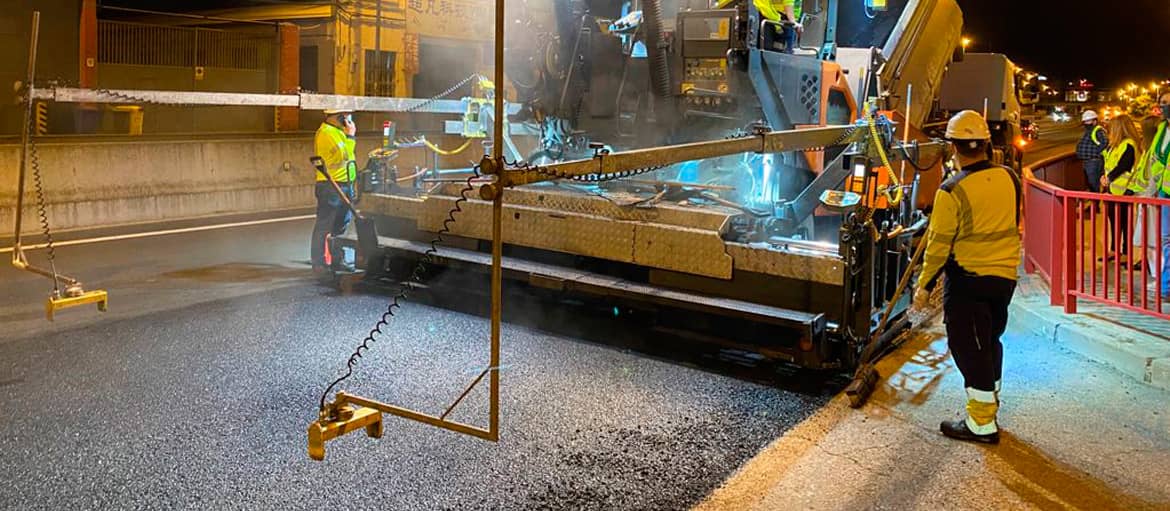 Pavimentación en la carretera M-506 (Madrid)
Pavimentación en la carretera M-506 (Madrid)
Extendido de MBC Avenida de Monforte de Lemos (Madrid)
Avenida de Monforte de Lemos (Madrid)
Extendido de MBC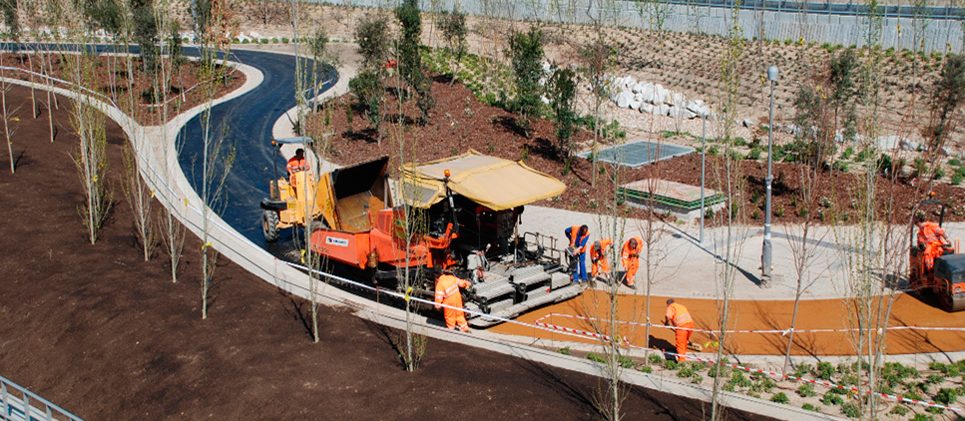 M-30 Yeserías (Madrid)
M-30 Yeserías (Madrid)
Aglomerado en color Calle Gran Vía (Madrid)
Calle Gran Vía (Madrid)
Extendido de MBC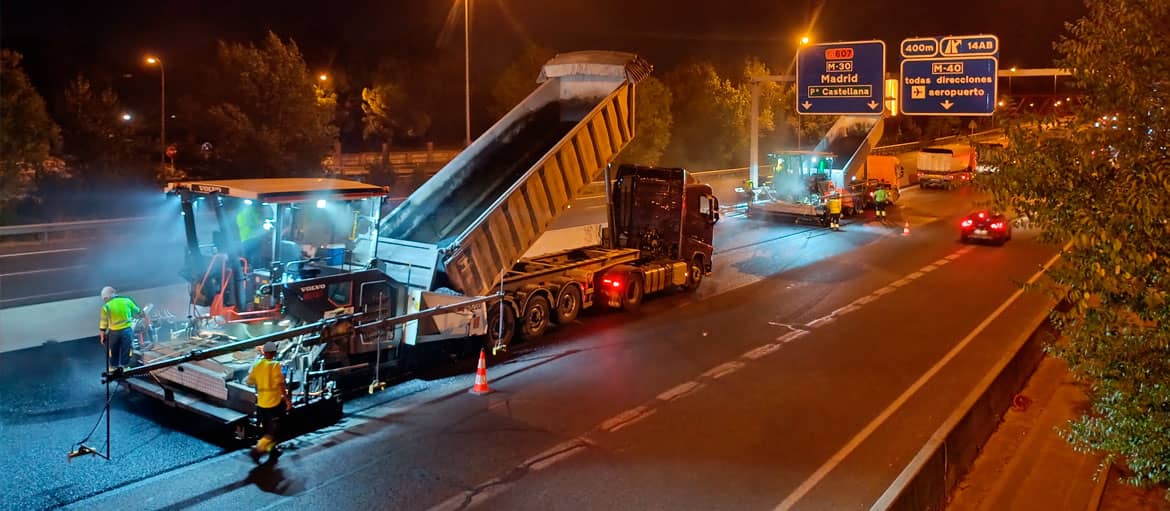 M-607 (Madrid)
M-607 (Madrid)
Extendido de MBC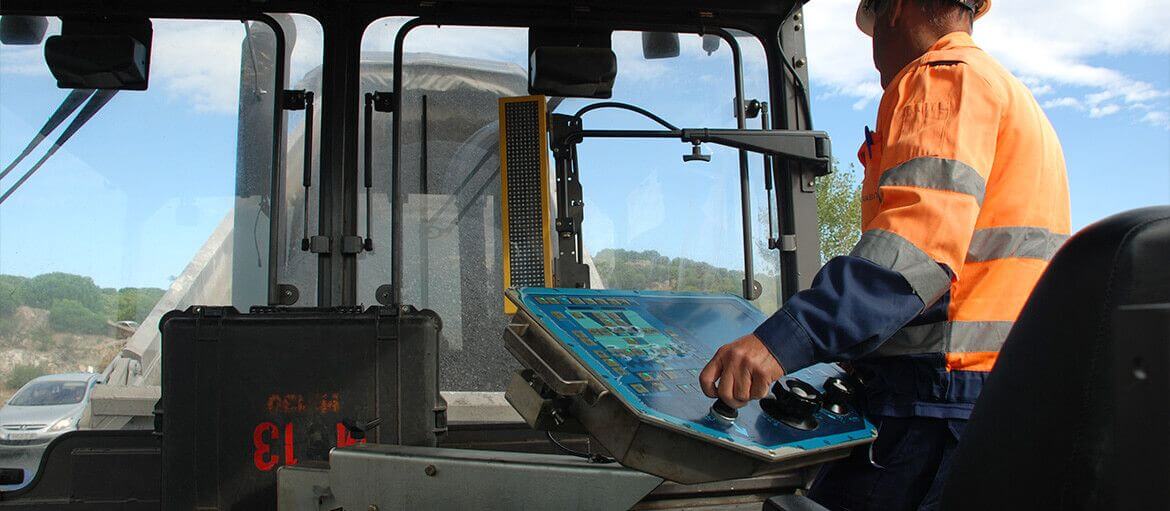 Toledo (Castilla-La Mancha)
Toledo (Castilla-La Mancha)
Puesta en obra de MBC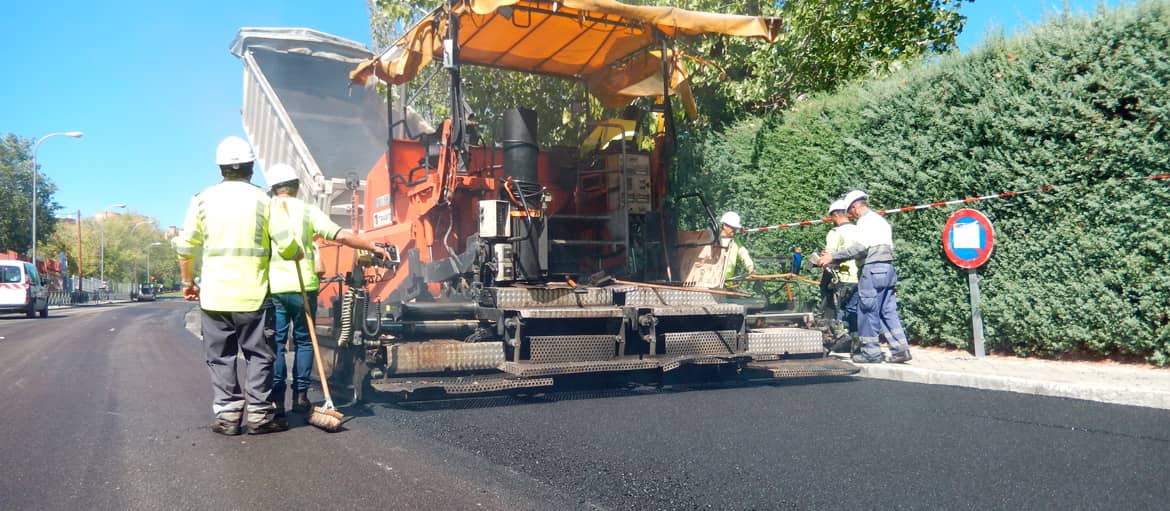 Calle Brezos (Madrid)
Calle Brezos (Madrid)
Extendido de MBC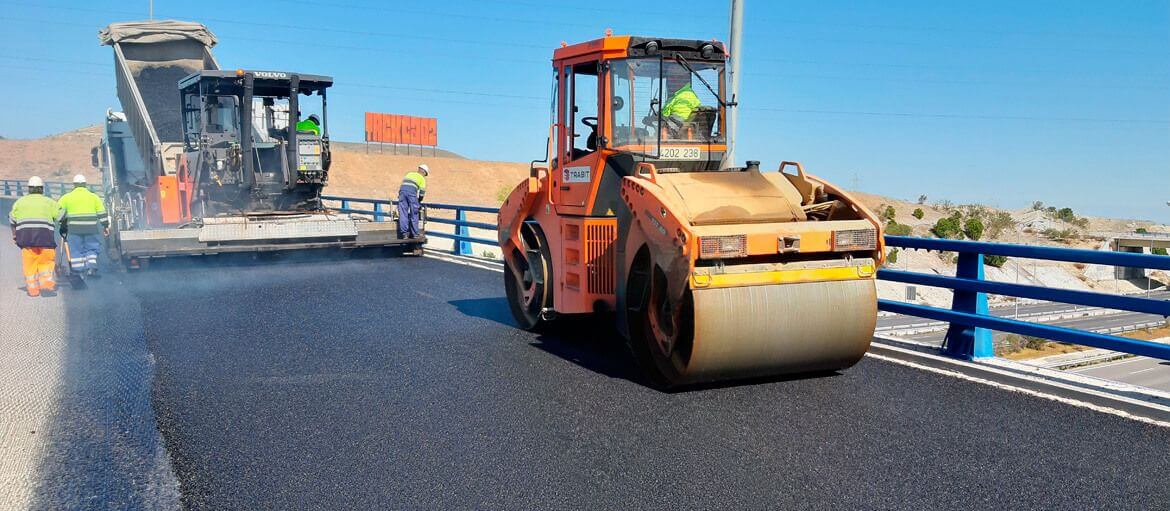 Camino del Espinillo (Madrid)
Camino del Espinillo (Madrid)
Extendido de SMA-11 Planta Termosolar Extremadura
Planta Termosolar Extremadura
Suelo estabilizado in situ con cemento y STS M30
M30
Extendido MBC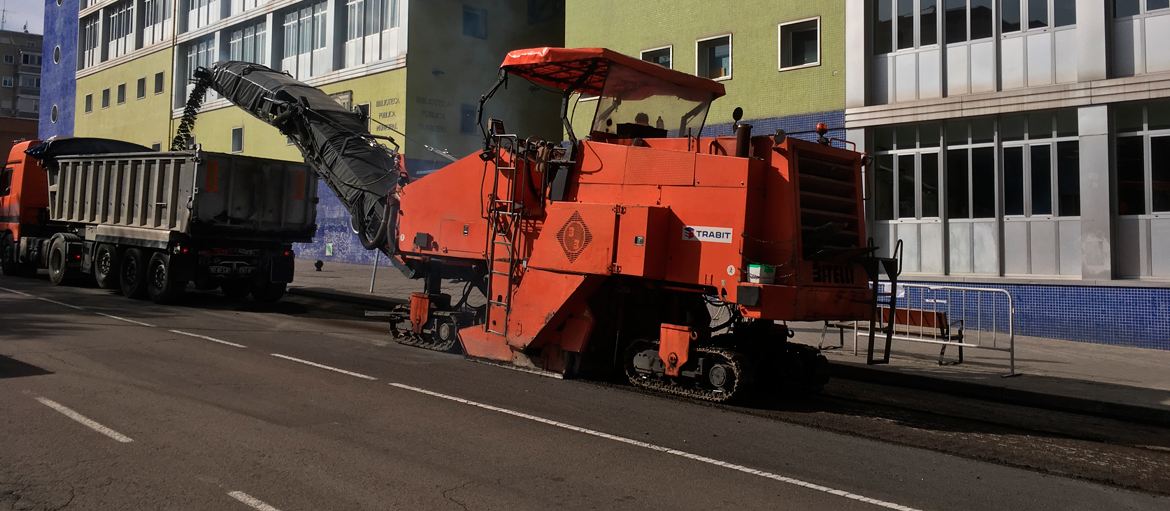 Ayuntamiento de Madrid
Ayuntamiento de Madrid
Plan de pavimentación de calzadas en barrios 2016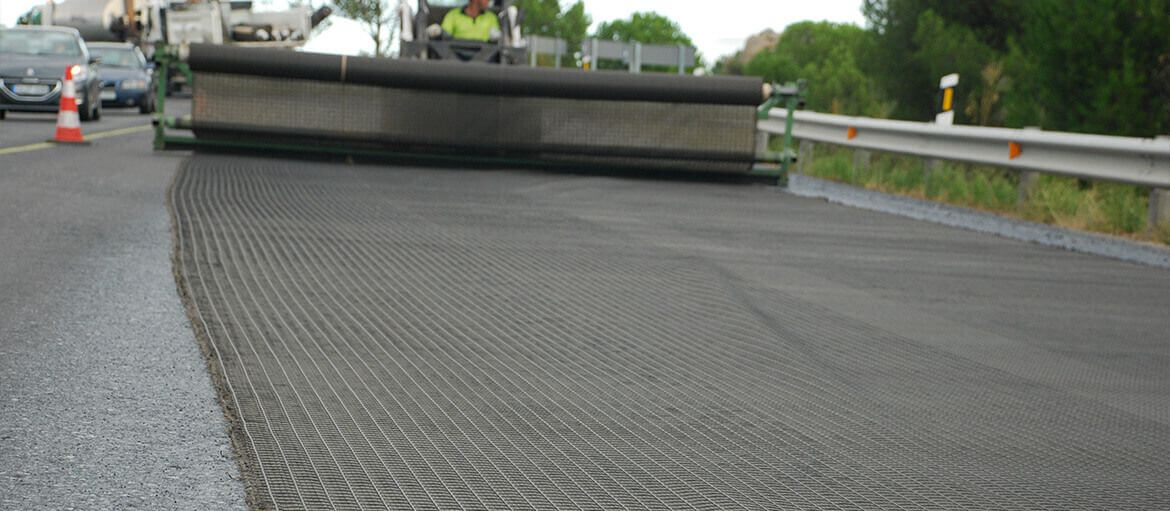 Comunidad de Madrid (2017)
Comunidad de Madrid (2017)
Geomalla antirremonte de fisuras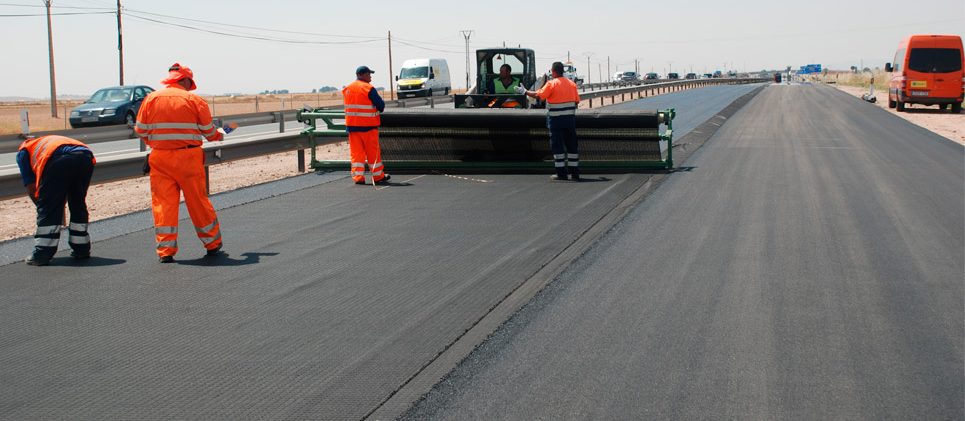 Autovía A-4 (Toledo)
Autovía A-4 (Toledo)
Reparación firme hormigón. Geomalla antifisuras Conservación y explotación de la carretera N-211
Conservación y explotación de la carretera N-211
Molina de Aragón (Guadalajara)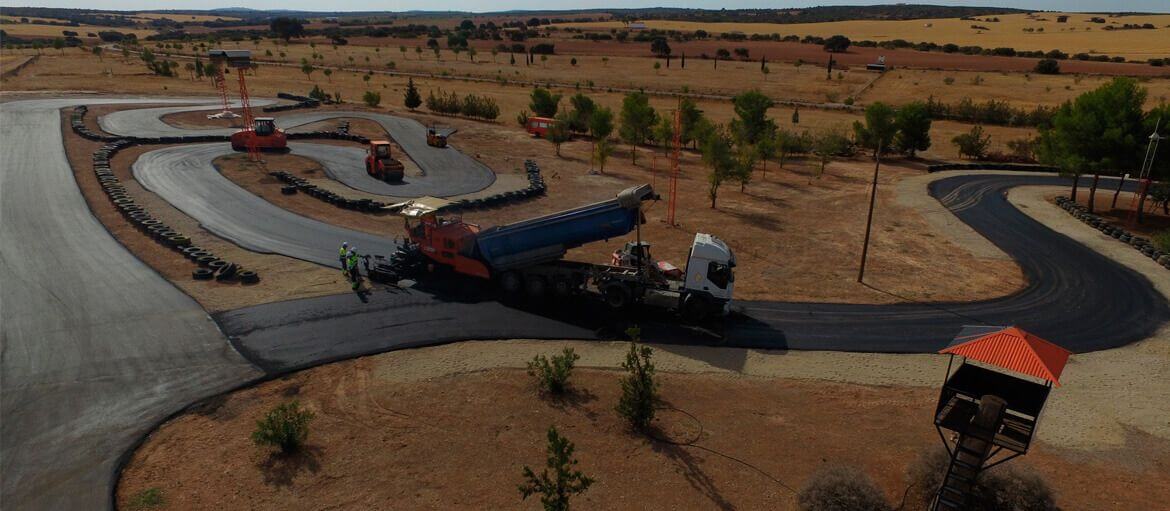 Tomelloso (Ciudad Real)
Tomelloso (Ciudad Real)
Pavimentación de circuito de karting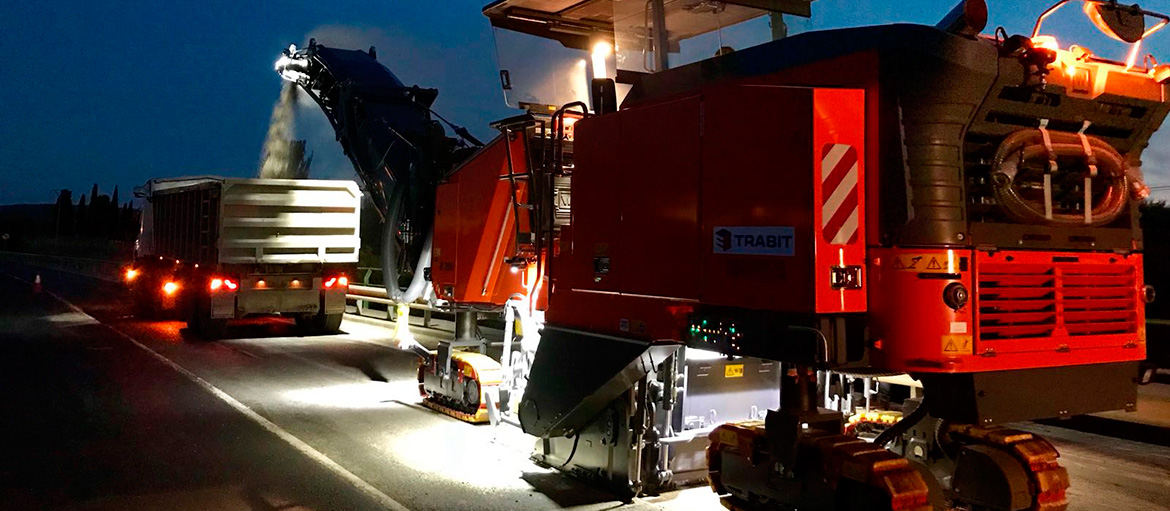 Carretera M-208, Velilla de San Antonio (Madrid)
Carretera M-208, Velilla de San Antonio (Madrid)
Fresado y reposición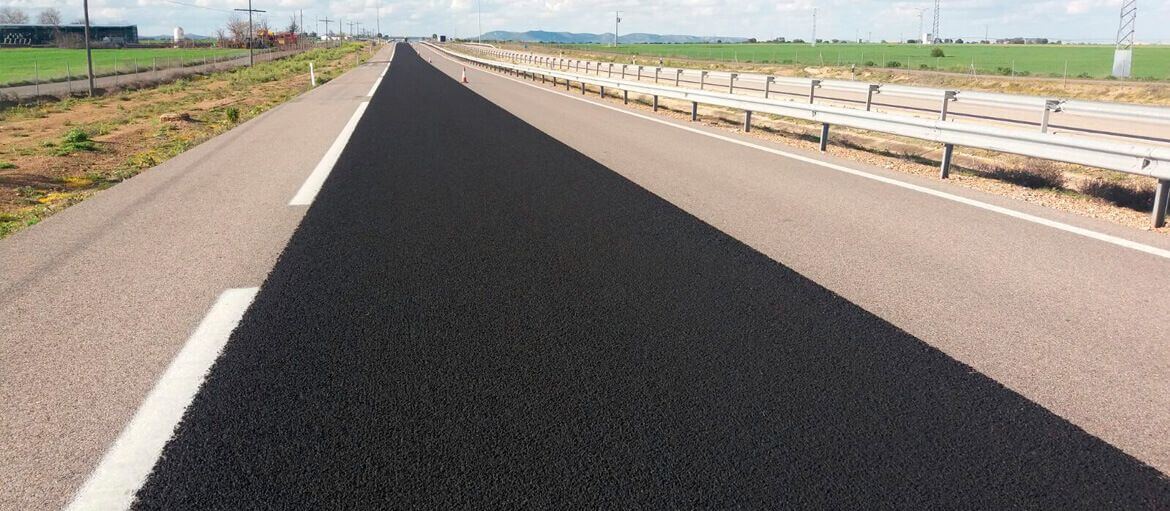 Autovía A-4 (Valdepeñas)
Autovía A-4 (Valdepeñas)
Microaglomerado en frío / lechada bituminosa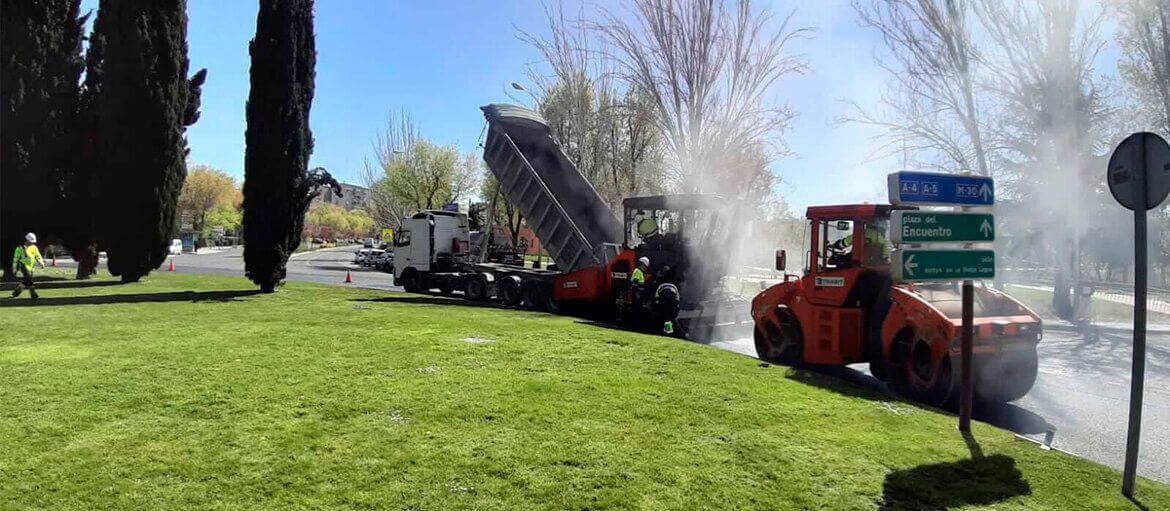 Avenida de Moratalaz (Madrid)
Avenida de Moratalaz (Madrid)
Mejora de la pavimentación en la ciudad. Ayuntamiento de Madrid Viaducto de vigas sobre el Rio Fresnedoso, Embalse del Cijara (Toledo)
Viaducto de vigas sobre el Rio Fresnedoso, Embalse del Cijara (Toledo)
Extendido y compactación de MBC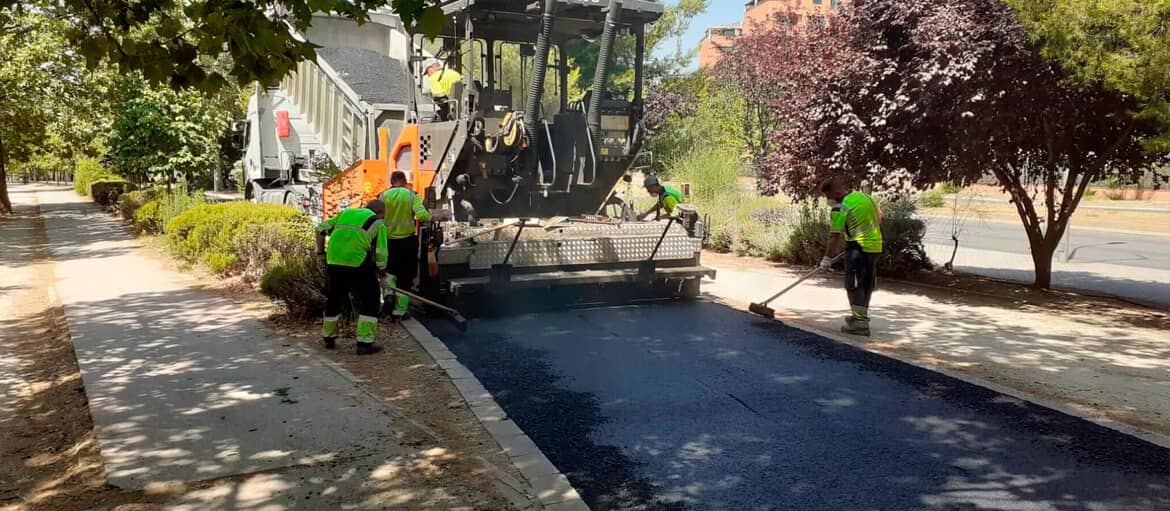 Anillo Ciclista Madrid
Anillo Ciclista Madrid
Extendido de MBC M30
M30
Extendido MBC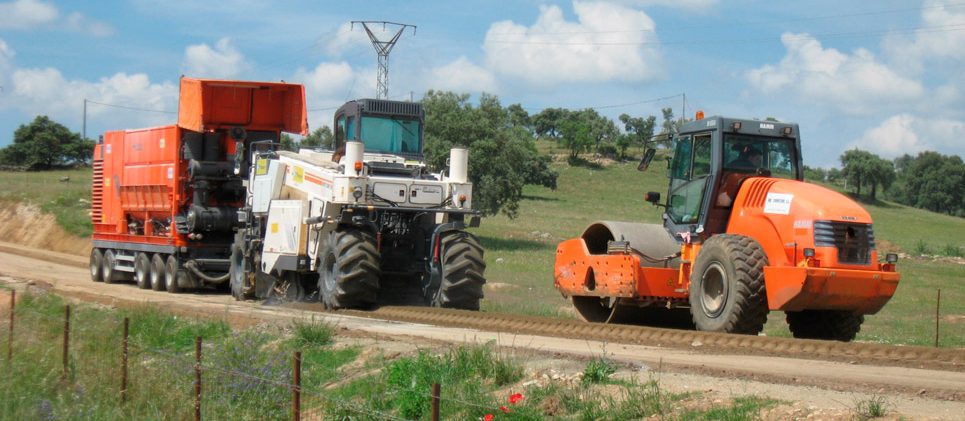 Carretera BAV-3018
Carretera BAV-3018
Suelo cemento in situ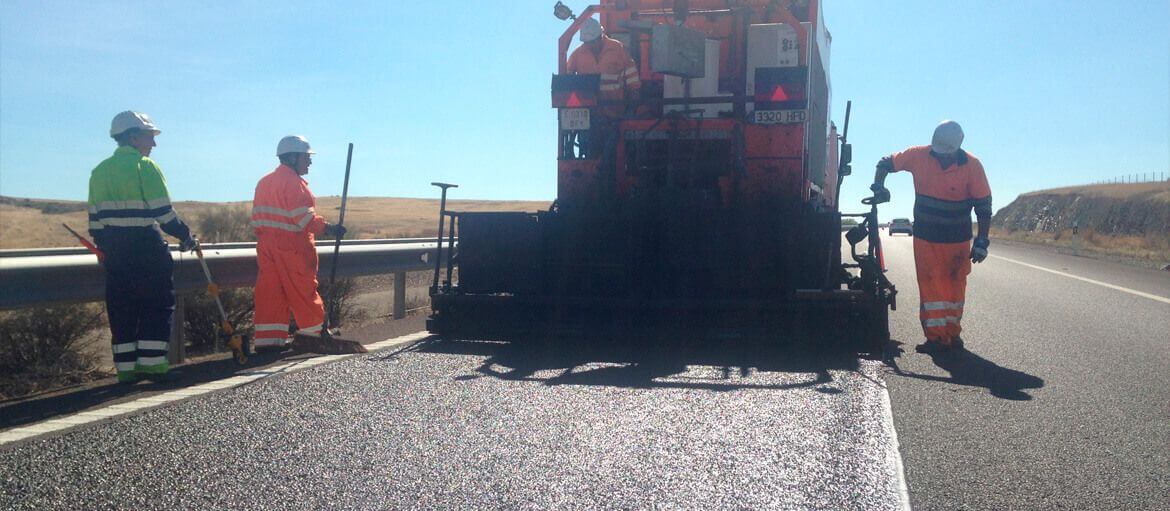 Carretera A-66 (Badajoz)
Carretera A-66 (Badajoz)
Microaglomerado en frío / lechada bituminosa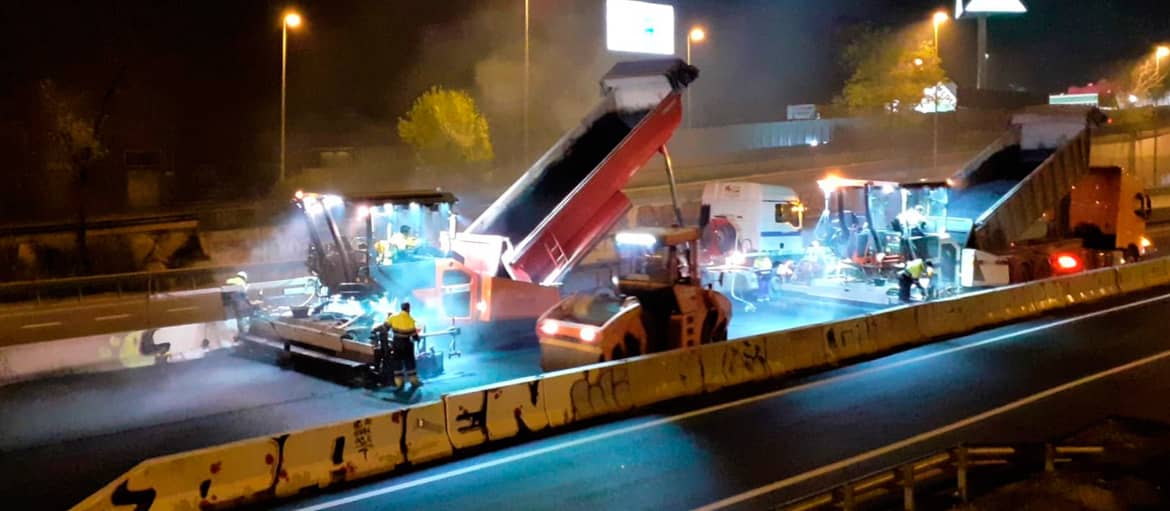 Carretera M-506 (Comunidad de Madrid)
Carretera M-506 (Comunidad de Madrid)
Extendido de MBC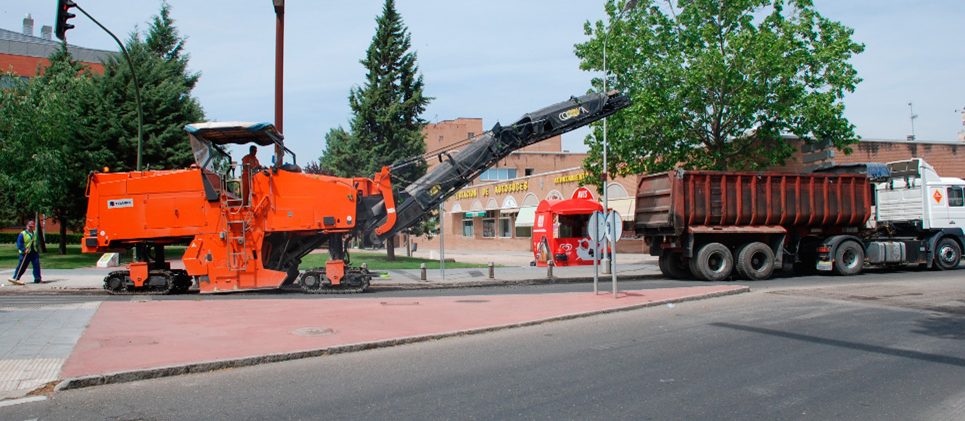 Avenida del Ejército (Guadalajara)
Avenida del Ejército (Guadalajara)
Fresado de mezcla asfáltica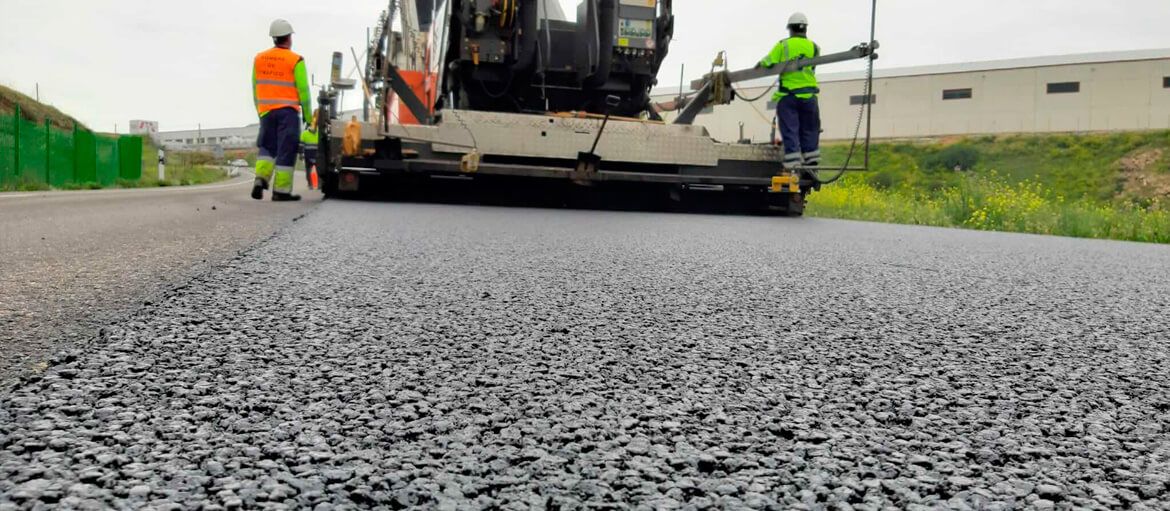 M-300 (Madrid)
M-300 (Madrid)
Refuerzo de firme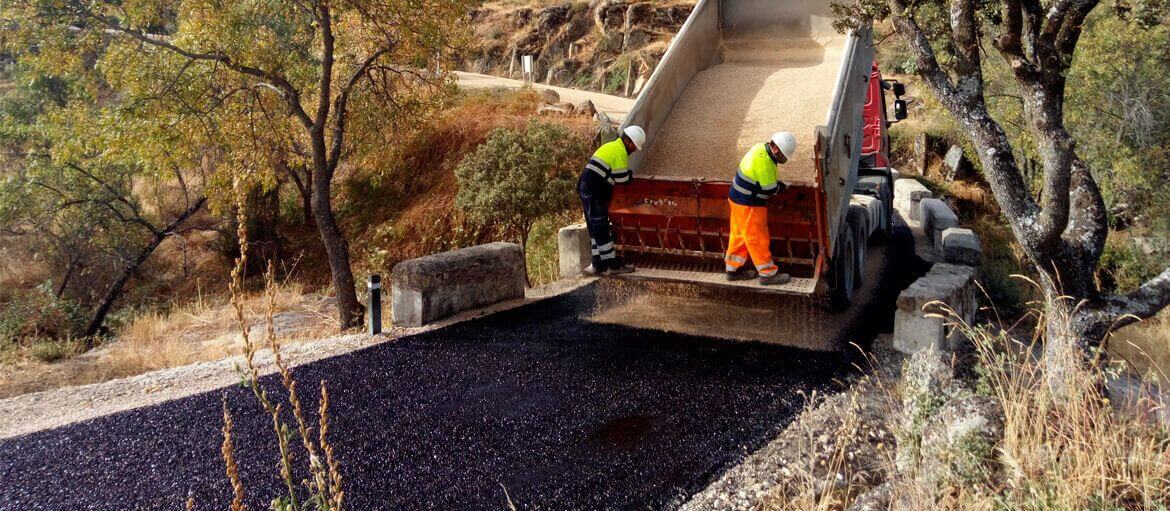 M-852 Galapagar
M-852 Galapagar
Riegos con gravilla (DTS)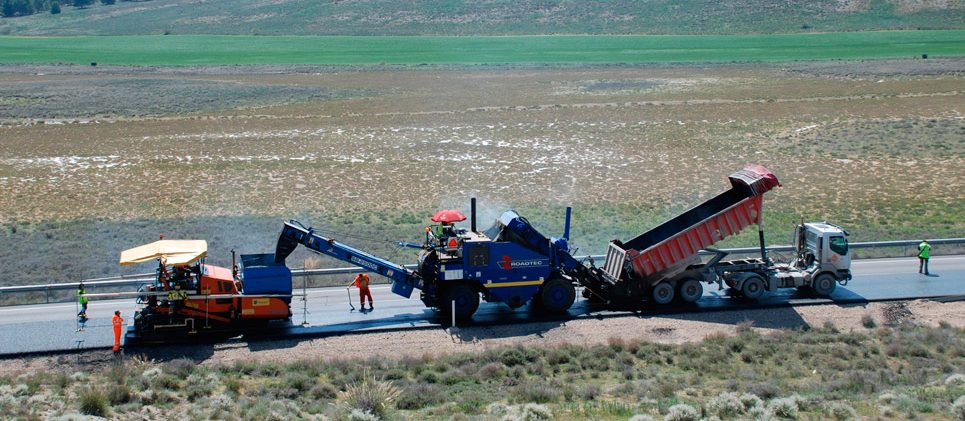 Carretera N-400 Toledo - Aranjuez
Carretera N-400 Toledo - Aranjuez
Refuerzo de firme Aeropuerto Adolfo Suárez. Madrid-Barajas
Aeropuerto Adolfo Suárez. Madrid-Barajas
Extendido MBC M-607
M-607
Extendido de MBC
TRABIT, empresa de asfalto en sus orígenes, tiene su principal actividad en la construcción y conservación de firmes de carreteras en las provincias de Madrid, Guadalajara, Ciudad Real, Toledo, Ávila, Cuenca, Segovia y Albacete. La pavimentación de carreteras, asfaltado de calles, fabricación de aglomerado con plantas propias, la puesta en obra de mezclas bituminosas en caliente, semicalientes y templadas, las lechadas bituminosas o slurry, microaglomerados en frio, reciclado de firmes y pavimentos, los riegos con gravilla y sellado de grietas, son las actividades actuales más importantes de la empresa.
Thanks to our research in new methods, TRABIT has had great success in developing and using special mixtures, including coloured asphalts.
Slurry seal or asphalt emulsion, is a pavement conservation treatment. When properly applied, it is a cost-efficient, effective, efficient and environmentally-friendly solution to many non-structural problems in roads and highways with asphalt surfaces.
Chip seal is one of the principal asphalt paving techniques.
Crack sealing is used to repair cracks in roads caused by contraction in the base layer or in the transversal and longitudinal seals in hydraulic cement concrete or asphalt agglomerates.
There are various reasons why stabilizing soil has and always will be common in Spain.
From the earliest versions of 6.1 IC, soil-cement has been included as a layer that could be used to construct road surfaces.
Cold in-place recycling of road surfaces using cement is a technique used to transform a deteriorated road surface into a new base layer of notable structural capacity, taking advantage of the road itself as a source for aggregates.
Cold recycling with an asphalt emulsion is a smart alternative to conventional milling and reuse.



